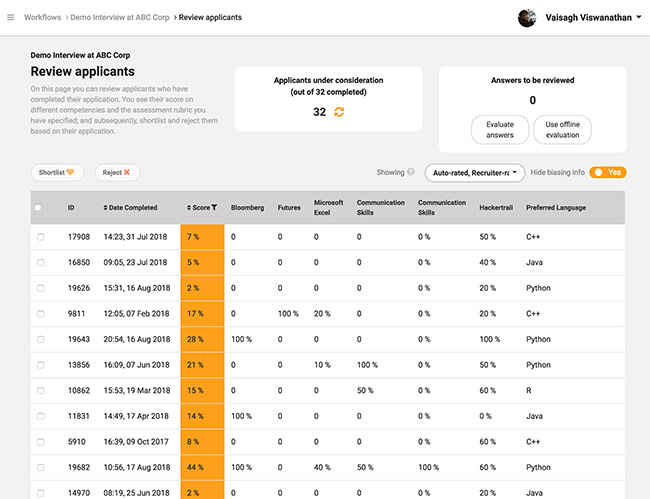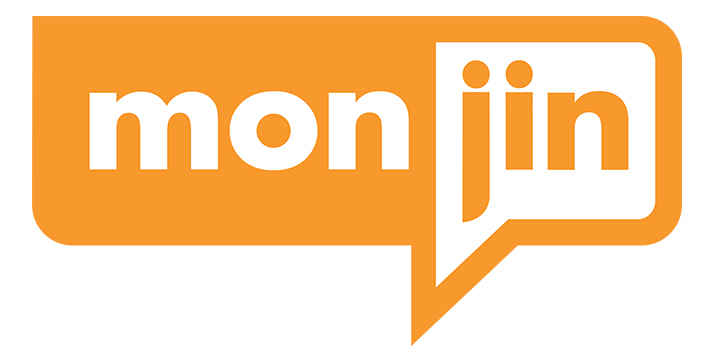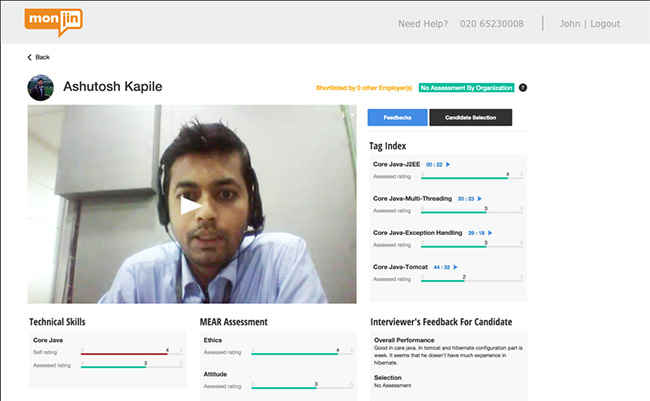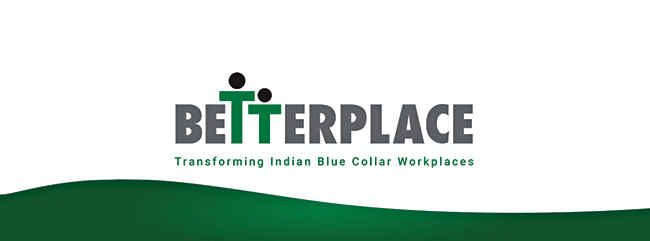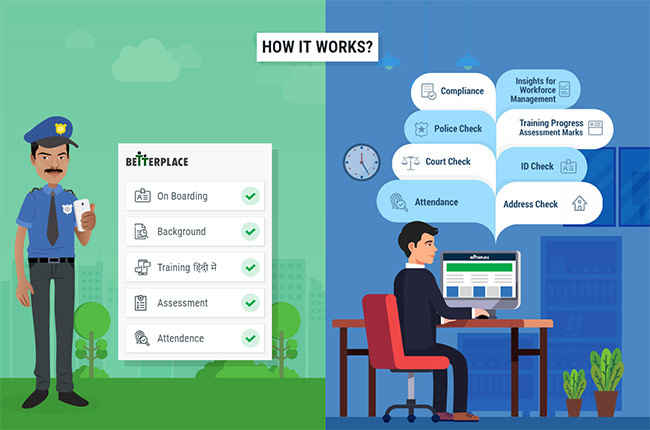Recruitment startups are making hiring easier in India

By using technology like chatbots, on-demand video interviews, as well as digitally supported lifecycle management, Indian startups are making the recruitment process seamless in the country
Getting a job becomes a priority in most of our lives at some point or the other. When it does, unless you’re really lucky, the recruitment process’ ugly face rears its head every single time. It is not so different for companies looking to hire the right candidate either. A job applicant needs to worry about applying for the right jobs, getting through the initial rounds of interview, getting picked from an ever-growing pool of prospective candidates and more. According to Glassdoor for Recruiters, a typical corporate job opening receives 250 resumes, out of which 4 to 6 are shortlisted and one is hired. When it takes roughly 6 seconds for recruiters to reject a resume, it’s pretty evident that candidates have it rough.
On the other hand, a company needs to worry about shortlisting the right people, making sure they do not hire people with dubious backgrounds, providing a good recruitment experience to all applicants without increasing the cost. The cost per recruitment is increasing over the years, and companies have to maintain a presence on social media, a particularly preferred platform for millennials to look for jobs.
Due to these factors, both the candidate and the recruiter today either dread the recruitment process or do not benefit from it as well as they potentially could. Startups in the recruitment industry are helping both companies and candidates have a more comfortable and seamless recruitment experience by attacking various aspects of the overall problem. We spoke to some of the most notable recruitment industry startups in India to understand how they’re doing it.
Screening through bots – impress.ai
There’s a prevalent fear that automation of any kind will eventually take away jobs from humans. After understanding impress.ai and its offerings, it is evident that if anything, automation will allow humans to perform their jobs better. Based out of Singapore, Impress.ai describes itself as an ‘AI powered recruiting solution’. “The current recruitment process is costly and inefficient”, says Vaisagh Viswanathan, CTO/Co-founder at impress.ai, “When recruiters spend up to 20% of the recruitment cycle just sifting through information, arbitrary filters creep in to help them speed up their work – for instance, a particular CGPA level, a specific set of schools etc. impress.ai aims to automate as much of the data stage as possible so that candidates have a fair, skill-based chance at getting the job.”
The arbitrary filters that Vaisagh speaks of are responsible for the quick rejection that a lot of deserving candidates face at the hands of overburdened recruiters. According to Vaisagh, the impress.ai platform attacks this problem on four fronts. The first is a chatbot that takes screening interviews. That chatbot takes into account the qualifications you’ve mentioned and screens your application with questions based on the same. The second is a bot creation wizard on the recruiter end takes your job requirements and creates a customised screening bot. The third is a semi-automated scoring system which is partially aided by AI. The screening bot learns from how actual recruiters rate free text answers and even learns how to answer questions from candidates. This allows recruitment professionals to speed through the scoring stage with better data in their hands. The fourth aspect is a reporting system that brings all of this data at the fingertips of the recruiter to be used during an in-person interview.
This is what an interview process that integrates Impress.ai could look like
“We’ve brought down the time spent by recruiters on information gathering by 75%,” Vaisagh says, “Where a recruiter would have to spend 37 minutes to screen a candidate earlier, it now only takes eight minutes. As a result, a candidate, who would usually have to wait a week after application for any progress, now gets an update in 30 minutes.”
Last year, Amazon’s machine learning experts discovered that their AI recruitment tool was biased against women because it was trained on biased data. It penalised resumes with the words ‘women’s’ such as Women’s chess club captain etc. According to Vaisagh, such biases are actively avoided on impress.ai by masking any kind of personal information for the bot during evaluation. It is only revealed upon the manual intervention of any kind. Even the individual answers are rated distinctly, without any connection to personal information. Impress.ai aims to solve the problems typically associated with the initials stages of recruitment.
On-demand interviews – Monjin
Once your application and resume do go through, the next stage – the actual in-person interview. Quite often, interviewers and potential candidates have to go back and forth several times before an interview can be scheduled at a time convenient to both. Even when that does happen, there’s often no way to go back to it and analyse it beyond the impression that was created during the interview itself. This is the problem that Monjin is trying to solve.
Monjin is a video interview platform that offers a number of interview models that helps candidates, interviewers and recruiting companies. Candidates signing up on the platform can opt for a one-way interview based on their skills. This interview is then analysed by industry experts who sign up with Monjin as interviewers. According to Mr Abhijeet Kashyape, CEO & Co-founder at Monjin, the candidates then receive a detailed analysis of their technical skills, as well as other aspects of an interview such their body language and soft skills.
A sample profile page for a candidate on Monjin
In future versions, candidates will also be able to share their interview and its analysis beyond the Monjin platform. Industry experts who sign up on Monjin as interviewers get paid for each interview they take. There are four ways in which a recruiting company can use Monjin’s services.
- Our Candidates Our Interviewers: An end to end solution where companies access Monjin’s repository of completed interviews in their requirement area to shortlist candidates directly.
- Your Candidates Our Interviewers: Monjin serves to provide the interview experts and the platforms, and also handles scheduling. This enables companies to hire beyond their expertise area.
- Your Candidates Your Interviewers: Monjin only serves as the workflow and scheduling manager here. Multiple stakeholders can be involved.
- One way interviews: the first type mentioned earlier, candidates can record responses to pre-determined questions in their expertise area.
The overall proposition of on-demand interviews, that are not bound by location or availability of expertise is to smoothen the recruitment process.
Blue-collar lifecycle management – Betterplace
A large portion of India’s workforce is in the blue collar segment – or manual labour. In recent times, the evolution of the on-demand economy and the rise of startups that provide such services has led to a boom in blue collar jobs. However, the corresponding infrastructure to manage these employees didn’t evolve at the same pace until very recently. We might have companies like Betterplace to thank for that.
Betterplace acts as a lifecycle management platform for blue-collar employees. Today, someone employed for a white-collar role doesn’t have to consider the possibility of a credit score, a background verification, medical insurance and reimbursements, other forms of insurance, loan approvals etc. However, these things, taken for granted by the white collar segment, are often not available for blue-collar employees. For instance, how do you generate the credit score for someone who has been paid in cash their entire career? This is where Betterplace steps in. Right from the moment of planning job requirements, Betterplace assists companies find the right people for the right roles. They have on ground contractors and infrastructure in multiple cities to find people who are seeking jobs.
An example of how it works on Betterplace in the Private Security domain
These people are brought onboard onto their platform after thorough background checks and data verification. Correspondingly, once they are onboard, they exist as a single entity on their platform. How does this help? Say Raj gets a job at employer A, works there for 3 years and then gets a better opportunity at employer B. Now, when employer B seeks to know more about Raj’s background, he can grant the employer access to his Betterplace profile which would include, among other things, his past employment records. It would also include his insurance information, track record, any known criminal records, and more than 200 other data points that would help a company make an informed decision. Interestingly, it also ends up helping the employee avail services such as loans, insurance due to their financial records being readily available.
This scale of data collection also provides interesting opportunities for insights. “Hiring trends are one part of it,” says Mr Pravin Agarwala, CEO, Betterplace, “We also help employers identify where their employees come from, which age group do they belong to etc. We also help the individual identify where potential opportunities can emerge from.” Betterplace also provides attendance management systems for employers and learning modules for employees to perform their respective responsibilities better. Other services like providing a vehicle for delivery personnel are also available. Overall, their objective is to remove the hurdles between a potential blue collar employee and a company looking to recruit them and keep them employed.



